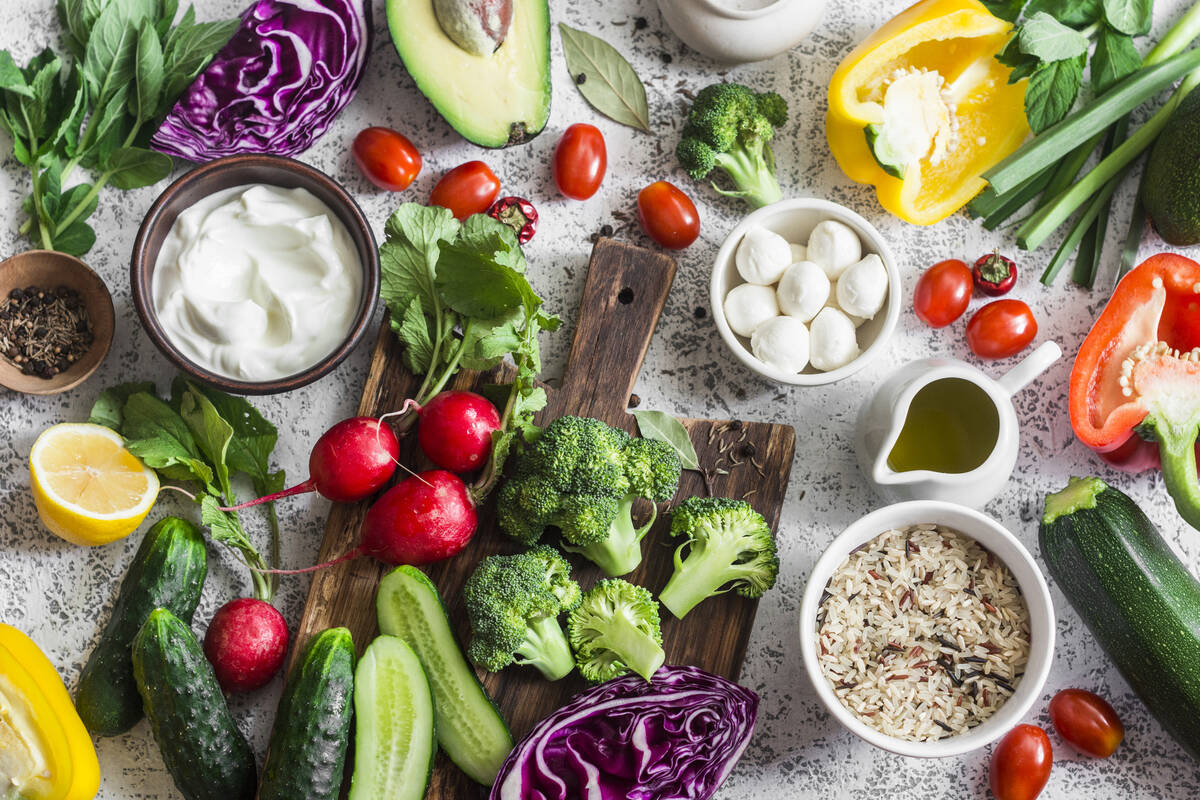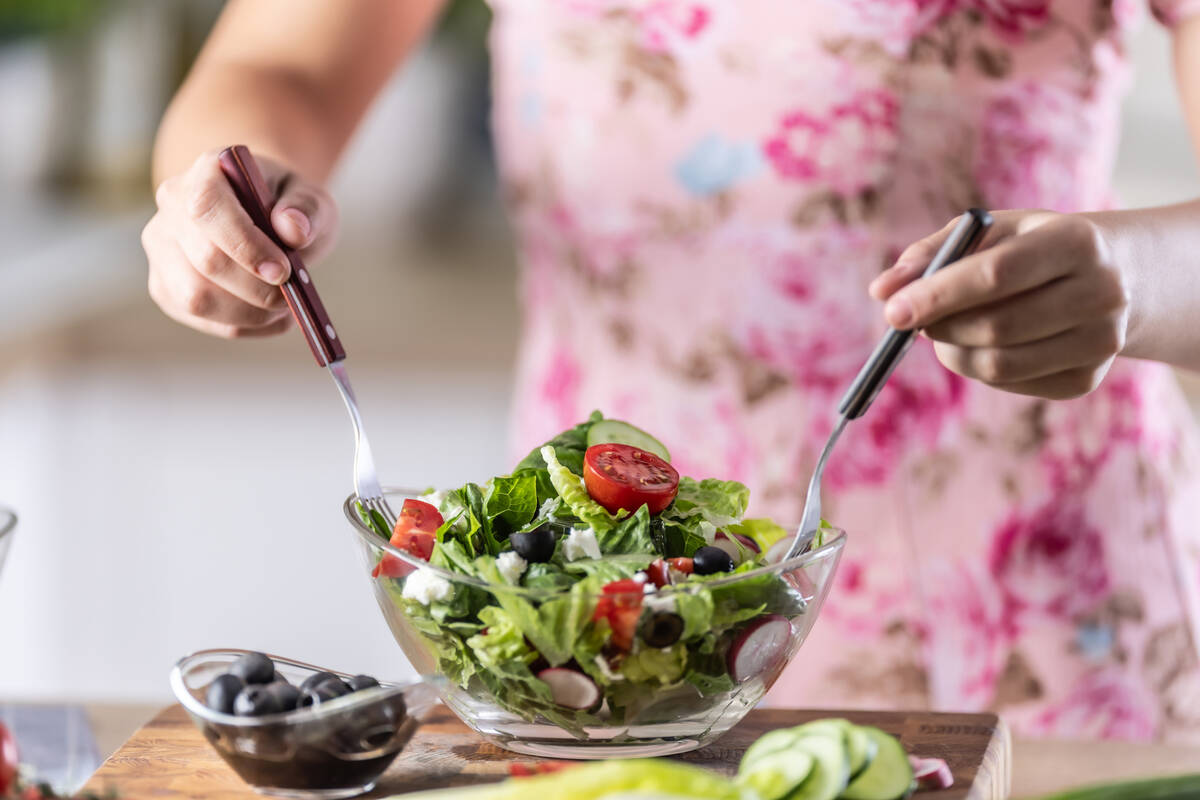What, exactly, is so great about the Mediterranean diet?
Healthful eating is important at any age to lower the risk of obesity and keep the heart and everything else inside the body functioning well. This becomes especially crucial later in life because good nutrition helps reduce the risk of chronic conditions like hypertension, high cholesterol and cardiovascular disease.
Being smart about what you eat also can affect your mood — ultraprocessed foods that include hydrogenated oils and high-fructose corn syrup, for instance, can increase the risk of depression — and some studies even suggest that healthy eating patterns can help delay or prevent developing dementia as we get older.
One way to improve your health while also eating some really wonderful foods, says Natalie Bruner, a registered dietitian and nutritionist with St. Clair Health, is to follow the Mediterranean style of eating.
Often referred to as the Mediterranean diet, it’s not so much a “diet” in the traditional sense. It’s more of a lifestyle.
Patterned around the foods eaten by people who live in countries bordering the Mediterranean Sea — think Italy, Greece, Spain and Northern Africa — it puts a daily emphasis on plant-based dishes and heart-healthy, unsaturated fats such as olive oil instead the refined or hydrogenated oils that are so common in fast food meals and snack foods.
The diet also emphasizes whole, minimally processed foods such as beans, seeds and legumes, antioxidant-rich fresh fruits and vegetables, and moderate portions of lean protein like chicken and seafood, with only the occasional serving of red meat.
Fish that is high in omega-3 fatty acids, such as salmon, is especially key because it can help reduce inflammation and pain caused by arthritis, which is common in seniors, as well as improve cholesterol levels.
Heart-healthy diet
“It’s not a diet that’s restrictive,” Bruner says. “You’re eating everything that’s good for you, which is great.”
Dietitians and nutritionists generally don’t like to characterize food as “good” or “bad” because that can lead to restrictive behaviors, she says. Yet multiple studies have shown that those who follow the Mediterranean diet have better cognitive function and brain health in old age, she says.
Because of its anti-inflammatory and antioxidant properties and its effectiveness at preventing obesity, there also are a lot of heart health benefits, with the prevention and progression of diseases such as Type 2 diabetes, which is associated with lifestyle and diet.
For instance, according to a 2023 study in the medical journal Heart, women who follow a Mediterranean diet more closely than others had a 24 percent lower risk of cardiovascular disease. They also had a 23 percent lower risk of mortality.
So what’s the best way to get started?
When it comes to fruits and vegetables, one of the easiest ways to get the naturally occurring polyphenols that help control blood pressure and blood sugar levels — and fight infection that can lead to chronic disease — onto the plate is to incorporate the “colors of the rainbow.” Because different fruits and veggies contain different nutrients, “if you restrict one thing, you might be deficient in another,” Bruner says. The more variety, the better chance you’ll get all the dietary micronutrients you need.
Making small changes
If you’re a picky eater, try to incorporate something you’ve never had before each week, and also don’t be afraid to give another try to something you think you dislike. “Sometimes it takes our bodies multiple times of being exposed to something before we like it,” she says.
We also tend to lose our savory taste buds as we age, with sweet being the last to go, which is why a lot of older adults crave sweet and sugary items like candy and ice cream instead of foods marked by herbs and spices.
“It’s just the way we taste foods as we age,” Bruner says.
Encouraging an array of fruits, which tend to be both lower in calories and higher in fiber, can help satisfy those cravings.
Healthy proteins are another concern. The need for protein increases as we age to maintain lean muscle mass, yet it’s something a lot of older adults lack. “What they really want is refined carbs, which is opposite of what our bodies need,” she says.
If you don’t care for fatty, cold-water (and good-for-you) fish like salmon, trout or tuna, choose a skinless, lean poultry like chicken or turkey and then reach beyond the salt shaker into your spice cabinet to make it sing. Potent flavorings like cloves, cumin, cinnamon, ginger, paprika and turmeric not only please waning tastebuds with intense flavor but add a punch of antioxidants.
Remember, too, that grains, beans and lentils can play a starring role when it comes to adding protein to plant-forward salads, sides and main dishes. They’re also often cheaper than chicken or fish.
“The overarching theme is incorporating whole foods and cutting back on ultra-processed foods,” Bruner says.
Cutting back on stress and staying active also help to keep people healthy into old age in large numbers, so be sure to move on a daily basis.
Above all, set small goals, especially if you’re used to following an ultraprocessed diet.
“You are not going to make these changes all at once,” Bruner says. “But making small changes can help you substantially follow a healthy lifestyle.”



















